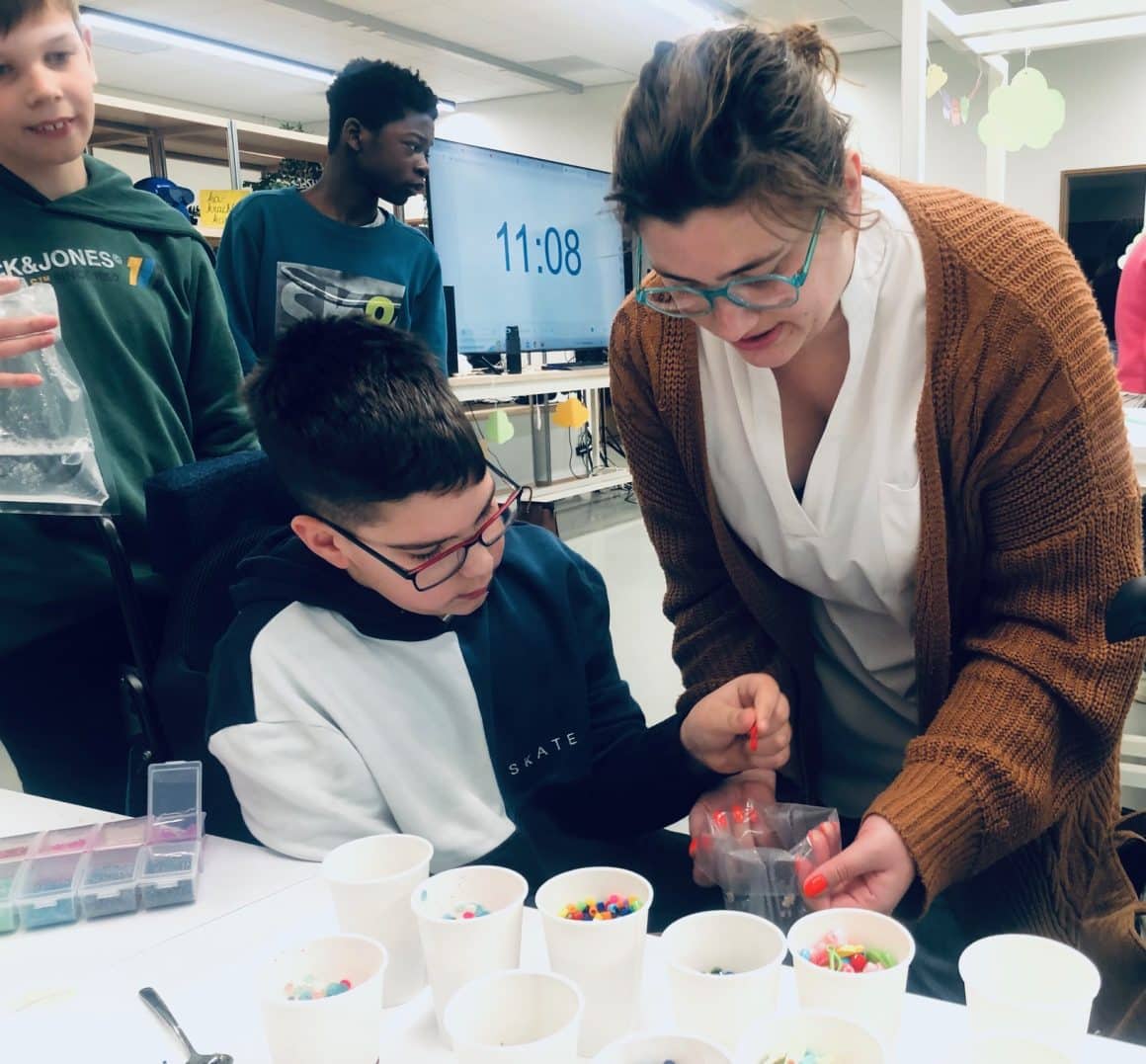Two days in a row, we went in low-stimulus mode at Howest University in Belgium. This time around, we didn’t host hundreds and hundreds of young creative minds all at the same time. Instead, we organised consecutive tailor-made workshops developed by Occupational Therapy students at Howest University to host small groups of primary school children from special-needs education in a low-stimulus setting.
The university student teams were assigned to provide all Dream Machines with an occupational therapy approach, taking into account the specific needs and requirements of the children. This setting doubled as the final round of customer feedback on all proof-of-concept models.
Next up were workshops to create ‘fidget toys’. This year’s participants are clearly fans because it was their explicit wish to provide this as an extra to all the Dream Machines. The solution: they could make them themselves. These fidget toys can relax children and increase concentration. An opportunity for the students to experiment with new materials and techniques.
“It was an excellent morning! It was interesting that the students got explanations about the different projects. The students were excited that they could really get to work themselves. The fidget toys they were allowed to make will certainly be used in the classroom and at home!“, Teacher Luna Zimmermann, Primary School De Klim-Op, Zwevegem, Belgium.









